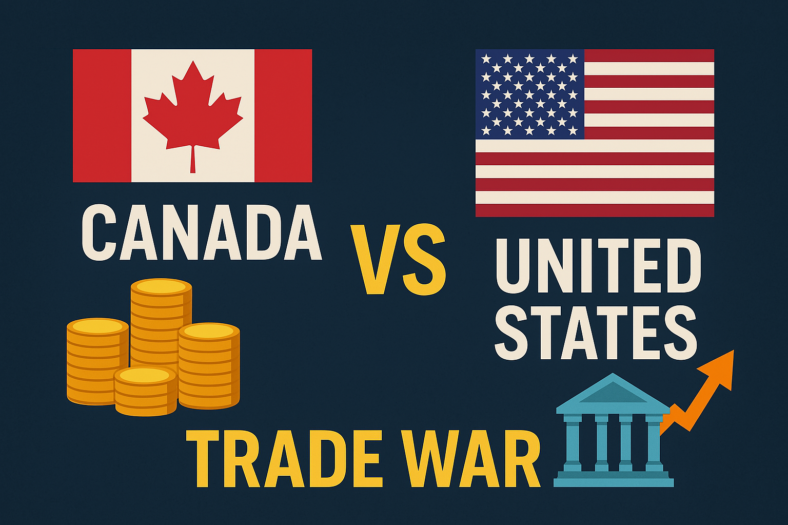Best Car Loans – Our Top Picks
What are car loans and how do they work?
Car loans are financial products designed to help individuals purchase a vehicle by providing them with the necessary funds upfront, which they then repay over time, typically with added interest. Here’s a detailed breakdown of how car loans work:
Loan Amount: When you take out a car loan, the lender provides you with a lump sum of money equal to the purchase price of the vehicle, or a portion thereof, depending on your down payment. This amount covers the cost of the car, taxes, and any additional fees.
Interest Rate: Car loans accrue interest, which is the cost of borrowing money from the lender. Interest rates can be fixed or variable. Fixed rates remain the same throughout the loan term, providing predictability in monthly payments. Variable rates, on the other hand, fluctuate based on market conditions, potentially resulting in varying monthly payments.
Loan Term: The loan term refers to the duration over which you repay the loan. Car loans typically have terms ranging from 12 to 84 months, though the most common terms are 36, 48, or 60 months. Longer loan terms may result in lower monthly payments but often come with higher overall interest costs.
Down Payment: A down payment is an initial payment made by the borrower toward the purchase price of the vehicle. It reduces the loan amount and, consequently, the monthly payments and total interest paid over the loan term. A larger down payment typically results in better loan terms.
Monthly Payments: Borrowers repay car loans through monthly installments, which consist of both principal (the loan amount) and interest. The monthly payment amount is determined by factors such as the loan amount, interest rate, and term length.
Secured Loans: Car loans are often secured by the vehicle itself, meaning if you default on payments, the lender can repossess the car to recoup its losses. This reduces the risk for the lender, which may result in lower interest rates compared to unsecured loans.
Creditworthiness: Lenders assess borrowers’ creditworthiness based on factors such as credit score, income, employment history, and debt-to-income ratio. A strong credit profile typically results in lower interest rates and more favorable loan terms, while a weaker credit profile may lead to higher rates or difficulty obtaining financing.
Overall, car loans provide a means for individuals to purchase vehicles without paying the entire cost upfront. Understanding how car loans work empowers borrowers to make informed decisions and secure financing that aligns with their financial circumstances and goals.
Pros and cons of car loans
Car loans offer a convenient way to finance the purchase of a vehicle, but like any financial product, they come with both advantages and disadvantages. Here’s a detailed look at the pros and cons of car loans:
Pros:
Immediate Vehicle Acquisition: Car loans enable you to purchase a vehicle without having to pay the full purchase price upfront. This allows you to acquire the car you need immediately, rather than having to save for an extended period.
Flexible Payment Options: Car loans typically offer flexible repayment terms, allowing borrowers to choose the loan term that best fits their budget. Longer terms result in lower monthly payments, while shorter terms result in lower overall interest costs.
Builds Credit History: Successfully repaying a car loan can help establish or improve your credit history. Making timely payments demonstrates financial responsibility to credit bureaus, which can positively impact your credit score over time.
Ownership: Unlike leasing, where you return the vehicle at the end of the lease term, a car loan allows you to own the vehicle outright once the loan is paid off. This provides a sense of ownership and allows you to customize or sell the vehicle as desired.
Competitive Interest Rates: With a strong credit profile, borrowers can qualify for competitive interest rates on car loans. Lower interest rates result in lower overall borrowing costs and more affordable monthly payments.
Cons:
Depreciation: Vehicles depreciate in value over time, meaning they lose value faster than the loan balance decreases. This can result in being “upside down” on the loan, where you owe more than the car is worth, especially in the early years of ownership.
Interest Costs: Car loans accrue interest over the loan term, increasing the total cost of the vehicle. Longer loan terms may result in significantly higher interest costs, even if the monthly payments are lower.
Risk of Repossession: Car loans are typically secured by the vehicle itself, meaning if you default on payments, the lender can repossess the car to recoup its losses. This can result in the loss of the vehicle and damage to your credit.
Financial Commitment: Taking out a car loan is a long-term financial commitment. Monthly payments must be made on time, regardless of changes in financial circumstances such as job loss or unexpected expenses.
Potential for Negative Equity: If the vehicle depreciates faster than you repay the loan, you may end up owing more than the car is worth. This can make it difficult to sell or trade in the vehicle without incurring additional costs.
Understanding the pros and cons of car loans is essential for making informed decisions about financing a vehicle. It’s important to weigh these factors carefully and consider your individual financial situation and goals before committing to a car loan.
Types of car loans available in Canada
In Canada, several types of car loans are available to suit different financial situations and preferences. Here are some of the common types of car loans offered by lenders:
Traditional Auto Loans: Traditional auto loans are the most common type of car financing in Canada. With these loans, borrowers receive a lump sum of money from a lender to purchase a vehicle, which is then repaid over a specified term with interest. These loans may be secured or unsecured, depending on the lender’s requirements and the borrower’s creditworthiness.
New Car Loans: New car loans are specifically tailored for purchasing brand-new vehicles from dealerships. Lenders may offer special financing deals, such as lower interest rates or longer loan terms, to incentivize buyers to choose new cars.
Used Car Loans: Used car loans are designed for purchasing pre-owned vehicles. While interest rates for used car loans may be slightly higher than those for new car loans, they still offer competitive financing options for buyers looking to purchase a reliable used vehicle.
Dealer Financing: Many car dealerships in Canada offer financing options directly to customers through partnerships with lending institutions. Dealer financing can streamline the car-buying process by allowing buyers to arrange financing and purchase the vehicle in one location. However, it’s essential to compare dealer financing offers with other loan options to ensure you’re getting the best deal.
Balloon Loans: Balloon loans, also known as residual value loans, involve making lower monthly payments throughout the loan term and a larger “balloon” payment at the end to pay off the remaining balance. These loans may appeal to buyers who want lower monthly payments initially but should be approached with caution, as they can result in higher overall costs.
Lease Buyout Loans: For individuals who have leased a vehicle and decide to purchase it at the end of the lease term, lease buyout loans provide financing to buy out the residual value of the leased vehicle. These loans allow lessees to transition from leasing to ownership seamlessly.
Bad Credit Car Loans: Individuals with less-than-perfect credit may still qualify for car financing through bad credit car loans. These loans typically come with higher interest rates and stricter terms but can provide an opportunity for borrowers to rebuild their credit while purchasing a vehicle.
Refinancing Loans: Refinancing loans allow borrowers to replace an existing car loan with a new loan, often with more favorable terms. Refinancing can lower monthly payments, reduce interest rates, or extend the loan term, depending on the borrower’s goals and financial situation.
Understanding the various types of car loans available in Canada can help borrowers choose the option that best suits their needs and financial circumstances. It’s essential to compare interest rates, terms, and fees from multiple lenders to find the most competitive financing option for your vehicle purchase.
What loan terms are people choosing?
The choice of loan terms for car financing in Canada can vary depending on factors such as individual preferences, financial situation, and the type of vehicle being purchased. However, there are several common loan terms that borrowers tend to choose:
Short-Term Loans (24-36 months): Short-term loans typically have higher monthly payments but lower overall interest costs compared to longer-term loans. They are often chosen by borrowers who want to pay off their vehicle quickly and minimize interest expenses.
Medium-Term Loans (48-60 months): Medium-term loans strike a balance between monthly affordability and total interest costs. They offer relatively manageable monthly payments while allowing borrowers to pay off the loan within a reasonable timeframe.
Long-Term Loans (72-84 months): Long-term loans have the lowest monthly payments but result in higher overall interest costs due to the extended repayment period. They are popular among borrowers who prioritize affordability and cash flow flexibility.
Customized Loan Terms: Some lenders offer flexibility in choosing loan terms, allowing borrowers to select specific term lengths that align with their financial goals. This option enables borrowers to tailor their loan term to their budget and repayment preferences.
Manufacturer Promotional Terms: Car manufacturers and dealerships occasionally offer promotional financing deals with special terms, such as 0% APR financing for a limited term (e.g., 12-60 months). These promotional terms can be attractive to buyers seeking low-cost financing options.
While the most common loan terms in Canada typically range from 48 to 72 months, the optimal term for each borrower depends on various factors, including their budget, desired monthly payment, interest rate, and the total cost of the vehicle. It’s essential for borrowers to carefully evaluate their financial situation and consider the long-term implications of different loan terms before making a decision. Additionally, consulting with lenders and financial advisors can help borrowers identify the most suitable loan term for their needs.
How to find the best car loans in Canada
Finding the best car loans in Canada requires thorough research and comparison of lenders, loan terms, and interest rates. Here’s a step-by-step guide to help you find the most favorable car loan:
Check Your Credit Score: Start by checking your credit score, as it plays a significant role in determining the interest rate you’ll qualify for. A higher credit score typically results in lower interest rates and better loan terms. You can obtain a free copy of your credit report from major credit bureaus like Equifax or TransUnion.
Set Your Budget: Determine how much you can afford to spend on a car, considering factors such as your income, expenses, and existing debt obligations. Use online affordability calculators to estimate your monthly payments based on different loan terms and interest rates.
Compare Interest Rates: Research multiple lenders, including banks, credit unions, online lenders, and dealership financing options, to compare interest rates and loan terms. Utilize online comparison tools and loan calculators to streamline the process and identify competitive offers.
Consider Pre-Approval: Obtain pre-approval from multiple lenders to see the interest rates and loan terms you qualify for. Pre-approval allows you to shop for a car with confidence, knowing your financing options in advance. Compare pre-approved offers to determine the best loan terms available.
Evaluate Loan Terms: Pay attention to factors such as loan term, interest rate, down payment requirements, and any fees associated with the loan. Choose a loan with terms that align with your budget and financial goals, balancing monthly affordability with overall interest costs.
Review Additional Benefits: Some lenders may offer additional benefits or incentives, such as flexible repayment options, loan customization, or special promotions. Evaluate these benefits to determine which lender offers the most value for your needs.
Read the Fine Print: Carefully review the terms and conditions of each loan offer, including any potential penalties for early repayment, late payments, or other fees. Ensure you understand all aspects of the loan agreement before signing.
Negotiate: Don’t hesitate to negotiate with lenders to secure the best possible terms. Use competing offers and pre-approval letters as leverage to negotiate lower interest rates or additional benefits.
Consider Referrals and Reviews: Seek recommendations from friends, family, or online reviews to identify reputable lenders with positive customer experiences. A lender’s reputation for customer service and reliability is essential when choosing a car loan provider.
Finalize Your Loan: Once you’ve compared offers, negotiated terms, and selected the best car loan for your needs, finalize the loan application process with the chosen lender. Provide any required documentation, complete the paperwork, and proceed with purchasing your vehicle.
By following these steps and conducting thorough research, you can find the best car loan in Canada that meets your financial needs and helps you purchase your desired vehicle with confidence.
How to apply for a car loan in Canada
Applying for a car loan in Canada involves several steps to ensure a smooth and efficient process. Here’s a step-by-step guide on how to apply for a car loan:
Check Your Credit Score: Start by checking your credit score to understand where you stand financially. Your credit score plays a significant role in determining your eligibility for a car loan and the interest rate you’ll receive. You can obtain a free credit report from major credit bureaus like Equifax or TransUnion.
Set Your Budget: Determine how much you can afford to spend on a car, considering factors such as your income, expenses, existing debt obligations, and down payment amount. Use online affordability calculators to estimate your monthly payments based on different loan terms and interest rates.
Research Lenders: Research multiple lenders, including banks, credit unions, online lenders, and dealership financing options, to compare interest rates, loan terms, fees, and eligibility requirements. Consider factors such as reputation, customer service, and transparency when evaluating lenders.
Gather Documentation: Gather the necessary documentation required to apply for a car loan, including:
- Proof of identity: Driver’s license, passport, or government-issued ID
- Proof of income: Pay stubs, tax returns, or employment verification
- Proof of residence: Utility bill, rental agreement, or mortgage statement
- Vehicle information: Make, model, year, and VIN (Vehicle Identification Number) of the car you intend to purchase
Apply for Pre-Approval: Apply for pre-approval from multiple lenders to see the interest rates and loan terms you qualify for. Pre-approval allows you to shop for a car with confidence, knowing your financing options in advance. Submit your application online, over the phone, or in person, providing the required documentation.
Review Loan Offers: Review the loan offers you receive from lenders, including the interest rate, loan amount, loan term, down payment requirements, and any fees associated with the loan. Compare offers carefully to identify the most competitive terms and choose the loan that best fits your budget and financial goals.
Negotiate Terms: Don’t hesitate to negotiate with lenders to secure the best possible terms on your car loan. Use competing offers and pre-approval letters as leverage to negotiate lower interest rates, reduced fees, or other favorable terms. Lenders may be willing to adjust their offers to win your business.
Finalize the Loan: Once you’ve selected a loan offer and negotiated terms with the lender, finalize the loan application process. Provide any additional documentation requested by the lender, review and sign the loan agreement, and complete any remaining paperwork. Be sure to read the fine print of the loan agreement carefully to understand the terms and conditions.
Purchase Your Vehicle: With the loan approved and finalized, you’re ready to purchase your vehicle. Work with the seller or dealership to complete the purchase transaction, sign the necessary paperwork, and take possession of the car. Be prepared to provide any additional documentation required for vehicle registration and insurance.
By following these steps and carefully navigating the car loan application process, you can secure financing for your vehicle purchase and embark on your car ownership journey with confidence and peace of mind.
Common fees and interest rates for car loans
Common fees and interest rates for car loans in Canada can vary depending on factors such as the lender, the borrower’s creditworthiness, the type of vehicle being financed, and prevailing market conditions. However, there are certain fees and interest rate ranges that borrowers commonly encounter when securing car financing. Here’s an overview:
Interest Rates:
Prime Rate: Many car loans in Canada are tied to the prime lending rate set by the Bank of Canada. Lenders typically offer interest rates based on the prime rate, which may vary depending on the borrower’s credit profile and the lender’s policies.
Fixed vs. Variable Rates: Car loans may have fixed or variable interest rates. Fixed rates remain constant throughout the loan term, providing predictability in monthly payments. Variable rates fluctuate based on market conditions and may offer lower initial rates but come with the risk of increasing over time.
Credit Score Impact: Interest rates for car loans are heavily influenced by the borrower’s credit score. Individuals with higher credit scores generally qualify for lower interest rates, while those with lower scores may face higher rates or have difficulty obtaining financing.
Promotional Rates: Car manufacturers, dealerships, and lenders occasionally offer promotional financing deals with special interest rates, such as 0% APR financing for a limited term. These promotional rates can provide significant savings for eligible borrowers.
Common Fees:
Origination Fee: Some lenders charge an origination fee to process the loan application and establish the loan. This fee is typically a percentage of the loan amount and may be included in the total loan amount or paid upfront.
Administration Fee: Lenders may charge an administration fee to cover administrative costs associated with servicing the loan, such as account maintenance and customer support. This fee is usually a one-time charge.
Documentation Fee: A documentation fee, also known as a processing fee or paperwork fee, covers the cost of preparing and processing loan documents. This fee is common in dealership financing and may vary depending on the lender or dealership.
Prepayment Penalty: Some car loans may have prepayment penalties for paying off the loan early or making extra payments beyond the scheduled monthly payments. Prepayment penalties can offset the lender’s anticipated interest earnings and discourage early repayment.
Late Payment Fee: Lenders typically charge a late payment fee if borrowers fail to make their monthly payments by the due date. Late payment fees are intended to incentivize timely payments and may vary depending on the lender’s policies.
Security Deposit: In some cases, lenders may require a security deposit as collateral to secure the loan, especially for borrowers with lower credit scores or higher risk profiles. The security deposit is refundable upon loan repayment or may be applied toward the outstanding loan balance.
It’s essential for borrowers to carefully review the terms and conditions of any car loan offer, including the interest rate, fees, and repayment terms, to understand the total cost of borrowing and make an informed decision. Comparing multiple loan offers from different lenders can help borrowers identify the most competitive terms and secure the best financing option for their vehicle purchase.
What are the requirements to apply for a car loan
To apply for a car loan in Canada, borrowers typically need to meet certain requirements set by lenders. While specific requirements may vary depending on the lender and the borrower’s individual circumstances, here are the common criteria needed to apply for a car loan:
Age: Borrowers must be at least 18 years old to apply for a car loan in Canada. Some lenders may have higher age requirements, such as 19 or 21 years old.
Residency: Borrowers must be Canadian residents with a valid Canadian address. Lenders may require proof of residency, such as a utility bill or rental agreement, as part of the loan application process.
Income: Lenders typically require borrowers to have a stable source of income to demonstrate their ability to repay the loan. Employment income is the most common form of income accepted, although other sources, such as self-employment income, pension income, or investment income, may also be considered.
Employment Stability: Borrowers should have a stable employment history or source of income. Lenders may require proof of employment, such as recent pay stubs or employment verification from the employer, to assess the borrower’s income stability.
Credit History: Lenders assess borrowers’ creditworthiness based on their credit history and credit score. While a strong credit history and high credit score increase the likelihood of loan approval and favorable terms, some lenders offer options for borrowers with less-than-perfect credit.
Down Payment: While not always required, a down payment can improve the borrower’s chances of loan approval and may result in better loan terms, such as lower interest rates or reduced monthly payments. Lenders typically prefer borrowers who can provide a down payment of at least 10-20% of the vehicle’s purchase price.
Debt-to-Income Ratio: Lenders evaluate borrowers’ debt-to-income ratio, which compares the borrower’s total monthly debt payments to their gross monthly income. A lower debt-to-income ratio indicates a lower risk of default and may improve the borrower’s chances of loan approval.
Valid Identification: Borrowers must provide valid identification, such as a driver’s license or passport, to verify their identity and confirm their eligibility for the loan.
Vehicle Information: Borrowers should have information about the vehicle they intend to purchase, including the make, model, year, and VIN (Vehicle Identification Number). Lenders may require this information as part of the loan application process.
Insurance: Borrowers are typically required to provide proof of insurance coverage for the vehicle they intend to purchase. Lenders may specify minimum insurance requirements, such as liability coverage, collision coverage, and comprehensive coverage.
Meeting these requirements is essential for borrowers to qualify for a car loan in Canada. It’s advisable to gather all necessary documentation and information before applying for a loan to streamline the application process and improve the chances of approval. Additionally, shopping around and comparing loan offers from multiple lenders can help borrowers find the most competitive terms and secure the best financing option for their vehicle purchase.
New car loans vs used car loans
New car loans and used car loans each have their own advantages and considerations, catering to different preferences and financial situations. Here’s a comparison of the two:
New Car Loans:
Advantages:
Lower Interest Rates: New car loans often come with lower interest rates compared to used car loans. Lenders typically offer more favorable terms for new vehicles because they are perceived as lower risk due to their higher resale value and lower likelihood of mechanical issues.
Manufacturer Incentives: Car manufacturers and dealerships frequently offer special financing deals and incentives for new car buyers, such as low or zero percent APR financing, cash rebates, or extended warranties. These incentives can result in significant savings and added value for buyers.
Warranty Coverage: New cars typically come with manufacturer warranties that cover repair costs for a certain period or mileage, providing peace of mind against unexpected mechanical issues. This warranty coverage can reduce out-of-pocket expenses for repairs during the initial years of ownership.
Latest Features and Technology: New cars often feature the latest advancements in automotive technology, safety features, and design enhancements. Buyers can enjoy state-of-the-art features and improved performance that may not be available in older models.
Considerations:
Higher Depreciation: New cars experience rapid depreciation in value during the first few years of ownership, with the steepest depreciation occurring in the first year. This can result in negative equity, where the loan balance exceeds the vehicle’s value, especially if the car is financed with a low down payment or long loan term.
Higher Purchase Price: New cars typically have higher purchase prices compared to used cars of the same make and model. This can result in larger loan amounts and higher monthly payments for new car buyers.
Limited Selection: New car buyers may have a more limited selection of vehicles, especially if they’re looking for specific features, colors, or trim levels. Dealerships may need to order the desired vehicle from the manufacturer, which can extend the purchase timeline.
Used Car Loans:
Advantages:
Lower Purchase Price: Used cars generally have lower purchase prices compared to new cars, making them more affordable for buyers on a budget. Lower purchase prices result in smaller loan amounts and potentially lower monthly payments.
Less Depreciation: Used cars have already undergone the majority of their depreciation, meaning they retain their value more steadily than new cars. This can result in slower depreciation and less negative equity over time.
Wider Selection: Buyers have a wider selection of used vehicles to choose from, including different makes, models, years, and price ranges. This allows buyers to find a vehicle that meets their needs and preferences within their budget.
Considerations:
Higher Interest Rates: Used car loans often come with higher interest rates compared to new car loans. Lenders may view used vehicles as higher risk due to their older age and higher mileage, resulting in higher borrowing costs for buyers.
Limited Warranty Coverage: While some used cars may still have remaining manufacturer warranties or certified pre-owned (CPO) warranties, many used cars are sold “as is” without warranty coverage. Buyers may need to budget for potential repair costs or consider purchasing an extended warranty for added protection.
Potential Mechanical Issues: Used cars may have a higher likelihood of mechanical issues or wear and tear compared to new cars. Buyers should thoroughly inspect the vehicle’s condition, history, and maintenance records to assess its reliability and potential repair costs.
Ultimately, the choice between a new car loan and a used car loan depends on factors such as budget, preferences, and priorities. New car loans offer the latest features and lower depreciation but come with higher purchase prices and potentially higher monthly payments. Used car loans provide affordability and a wider selection but may require careful inspection and consideration of warranty coverage and potential repair costs. By evaluating these factors and considering their individual needs, buyers can make an informed decision that suits their financial situation and preferences.
Alternatives to car loans
There are several alternatives to traditional car loans that individuals can consider when financing a vehicle purchase. These alternatives offer flexibility and may be suitable for different financial situations and preferences. Here are some options:
Personal Loans: Personal loans are unsecured loans that borrowers can use for various purposes, including purchasing a vehicle. Unlike car loans, which are secured by the vehicle itself, personal loans do not require collateral. Borrowers can use the funds from a personal loan to buy a car from a private seller or dealership. Personal loans may have higher interest rates compared to car loans, but they offer flexibility in terms of loan amount and repayment terms.
Home Equity Loans or Lines of Credit: Homeowners may consider using a home equity loan or line of credit to finance a vehicle purchase. These loans are secured by the borrower’s home equity and typically offer lower interest rates compared to personal loans or traditional car loans. However, using home equity to finance a vehicle purchase puts the borrower’s home at risk if they are unable to repay the loan.
Credit Cards: While not typically recommended for financing a vehicle purchase due to high-interest rates, some individuals may use credit cards to cover a portion of the cost. Credit cards with introductory 0% APR offers or low promotional rates may provide temporary financing options. However, carrying a balance on a credit card can lead to substantial interest charges over time, so it’s essential to have a repayment plan in place.
Leasing: Leasing a vehicle involves paying for the use of the vehicle over a set period, typically two to four years, without the obligation to purchase it outright. Monthly lease payments are typically lower than loan payments for a comparable vehicle, making leasing an attractive option for individuals who prefer lower upfront costs and the ability to drive a new car every few years. However, leasing comes with mileage restrictions, excess wear and tear fees, and the vehicle must be returned at the end of the lease term.
Peer-to-Peer Lending: Peer-to-peer lending platforms connect borrowers with individual investors willing to fund their loans. Borrowers can apply for a loan online and receive funding from multiple investors. Peer-to-peer loans may offer competitive interest rates and flexible terms, but approval and interest rates are based on the borrower’s creditworthiness.
Manufacturer Financing and Incentives: Car manufacturers and dealerships often offer special financing deals and incentives for new vehicle purchases, such as low or 0% APR financing, cash rebates, or discounted lease offers. These promotional offers can provide savings and added value for buyers, especially those with strong credit.
Savings or Cash Purchase: For individuals who have sufficient savings or cash on hand, paying for a vehicle outright may be the most straightforward and cost-effective option. By avoiding financing charges and interest costs, buyers can save money over the long term and have full ownership of the vehicle from the start.
When exploring alternatives to car loans, it’s essential for individuals to carefully evaluate their financial situation, goals, and preferences to determine the most suitable option. Each alternative comes with its own advantages and considerations, so it’s crucial to compare options and choose the financing method that aligns with your needs and priorities. Consulting with financial advisors or loan professionals can also provide valuable guidance and assistance in selecting the right financing solution.
FAQs about the best car loans in Canada
Several factors can influence the interest rate you receive on a car loan, including your credit score, income, employment history, loan term, down payment amount, and the lender’s policies. Generally, borrowers with higher credit scores and stable financial backgrounds qualify for lower interest rates.
To improve your chances of getting approved for a car loan, focus on building a strong credit history, maintaining stable employment, saving for a down payment, and reducing existing debt. Additionally, obtaining pre-approval from multiple lenders and comparing loan offers can help you identify the most competitive terms available.
The choice between a fixed or variable interest rate depends on your risk tolerance and financial goals. Fixed rates provide predictability in monthly payments and protection against interest rate increases, while variable rates may offer lower initial rates but come with the risk of fluctuating payments based on market conditions.
The ideal loan term depends on your budget, financial goals, and preferences. Shorter loan terms result in higher monthly payments but lower overall interest costs, while longer loan terms offer lower monthly payments but may result in higher interest costs over time. Consider your budget and repayment timeline when choosing a loan term.
Yes, car loans may come with fees such as origination fees, administration fees, documentation fees, prepayment penalties, and late payment fees. It’s essential to review the terms and conditions of the loan agreement carefully to understand any fees associated with the loan.
Yes, borrowers can negotiate the terms of a car loan, including the interest rate, loan term, down payment requirements, and fees. It’s advisable to compare offers from multiple lenders, leverage pre-approval letters, and negotiate with lenders to secure the most competitive terms available.
To find the best car loan rates in Canada, research multiple lenders, compare interest rates and loan terms, improve your credit score, save for a down payment, consider pre-approval, negotiate with lenders, and read the fine print of loan agreements carefully.
Reputable lenders offering competitive car loan rates in Canada include banks, credit unions, online lenders, and dealership financing options. It’s essential to research multiple lenders, read customer reviews, and consider factors such as interest rates, loan terms, fees, and customer service reputation when choosing a lender.
In conclusion, car loans play a pivotal role in facilitating vehicle ownership for Canadians, providing access to reliable transportation while spreading the cost over time. Whether purchasing a new or used vehicle, borrowers have a variety of financing options available, each with its own set of advantages and considerations.
Navigating the landscape of car loans in Canada requires careful research, comparison, and consideration of factors such as interest rates, loan terms, fees, and eligibility requirements. By understanding their financial situation, setting a budget, improving creditworthiness, and exploring alternative financing options, individuals can make informed decisions and secure the best car loan for their needs.
Furthermore, it’s essential to choose reputable lenders with a track record of offering competitive rates, transparent terms, and excellent customer service. By leveraging pre-approval, negotiating terms, and reading the fine print of loan agreements carefully, borrowers can maximize their chances of securing favorable loan terms and achieving their vehicle ownership goals.
Ultimately, car loans provide a valuable means for Canadians to affordably purchase the vehicles they need to commute, work, and live their lives. With careful planning, diligence, and financial discipline, individuals can navigate the car loan process successfully and embark on their car ownership journey with confidence and peace of mind.




















